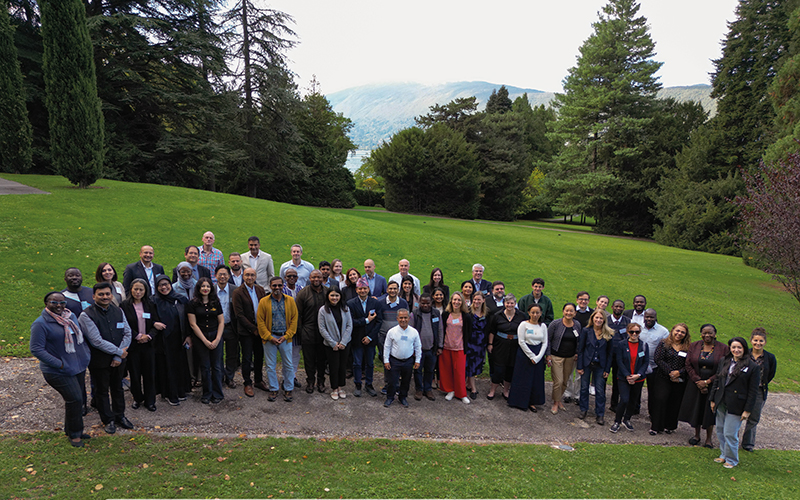
Participants of the 2025 edition of ACDx
For this edition, 33 participants from 22 countries were supported by over 40 international experts, deepening their understanding of the key role of diagnostics in the fight against infectious disease, particularly in countries with limited resources. Through plenary sessions, participatory workshops, round tables and technology forums, the discussions strengthened the participants’ strategic decision-making skills.
In his opening speech, Alain Mérieux, President of the Mérieux Foundation, reiterated that: “The fight against infectious disease must be part of a long-term vision based on a global approach. Bacteria and viruses know nothing of national borders.” He also emphasized: “What we are doing here is absolutely crucial. Many countries are affected, and we need this cooperation because we are all facing the same problems.”
Led by François-Xavier Babin (Mérieux Foundation) and Joseph Tucker (LSHTM), the ACDx 2025 program revolved around seven key sessions:
- The value of diagnostics in global health.
- The role of diagnostics in epidemic preparedness, with a focus on multifactor responses.
- Reinforcing laboratory systems to improve access to diagnostics.
- Diagnostic innovation, including a focus on gender and diagnostics.
- The role of diagnostics in the fight against antimicrobial resistance.
- Communication and public engagement around diagnostics, with a video pitch workshop teaching participants how to “sell” a diagnostic project to funders and health ministries.
- The durability of laboratory systems thanks to partnerships and networks.
Key innovations of this 14th edition included a brand-new module on the role of diagnostics in conflict settings, a session dedicated to responses involving multiple stakeholders. Particular emphasis was also placed on gender issues in diagnostics. In addition, the program was enriched with a workshop led by the WHO and an original video pitching session, where participants were able to practice presenting their diagnostic projects to funding bodies or health ministries.
Rosanna Peeling (London School of Hygiene and Tropical Medicine) looked back at the importance of the discussions that have taken place over many years at ACDx, emphasizing: “We have made progress in certain countries, and perhaps influenced the WHO and other authorities, which has enabled fairer access to diagnostics.”
Like every year, ACDx enabled attendees to strengthen their strategic decision-making abilities in terms of diagnostics while consolidating an essential international network for the fight against infectious disease.
Mahesh Kharel, a senior microbiologist at the Nepalese National Public Health Laboratory, stated: “ACDx helped me to better understand the importance of thinking global and acting local thanks to collaboration, cooperation, and coordination with different global health players. I greatly appreciated listening to the international experts and broadening my understanding of diagnostics. On a personal level, it helped me interact more easily with other people and create connections. Professionally, it gave me a global overview of diagnostics and invaluable experience.”
